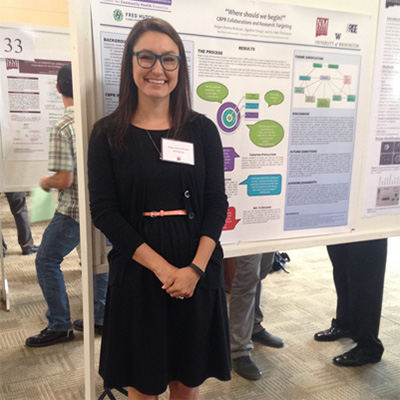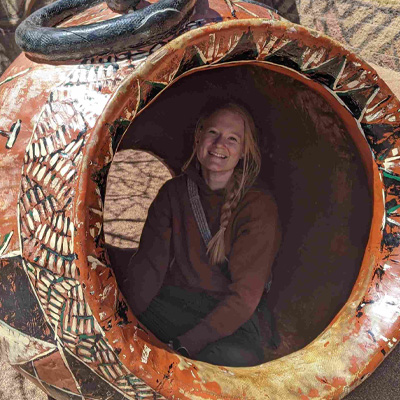Graduate Education
The UConn Department of Anthropology offers courses, lab and field-based training, individualized mentoring, and research opportunities to help students grow as anthropologists, scholars, and individuals.
Students and faculty in our department work across core and emerging subfields in anthropology, including:
- Archaeology
- Critical biocultural anthropology
- Cultural anthropology
- Environmental anthropology
- Evolution, cognition, and culture
- Human rights
- Medical anthropology
Students identify their own area(s) of specialization and work closely with their major advisor to develop a program of coursework tailored to their interests. They also gain hands-on training and experiential learning opportunities through:
- The department’s research labs
- Interdisciplinary collaboration with scholars in other departments, centers, and institutes
- Our faculty-led anthropological and archaeological field schools
- Fieldwork and internship opportunities in the U.S. and abroad
Degree Options
Doctorate of Philosophy (Ph.D.)
The Department of Anthropology offers a Ph.D. in Anthropology. Within that program, students can pursue two tracks:
- A Ph.D. track for students entering the program with a Master of Arts (MA) in Anthropology or an equivalent discipline.
- A joint MA/Ph.D. track for students entering the program without a master's degree in anthropology or an equivalent discipline.
Master of Arts (MA)
The department accepts students to complete a terminal MA in Anthropology in rare cases, such as when a student’s interests are closely aligned with our faculty expertise and the student’s chosen career path requires a master’s degree but not a Ph.D.
If you are interested in earning only a Master of Arts in Anthropology at UConn, please contact the Director of Graduate Studies to discuss options.
Our Community
Our department offers a collegial, collaborative, and supportive learning environment. We train students to undertake theoretically-grounded, socially-situated, and historically-contextualized scholarship.
Our degree programs provide rigorous training in ethical anthropological practice. We teach students to employ anti-racist, decolonial/anti-colonial, and intersectional approaches to better address contemporary issues and important questions about the past and present.
Department Resources
Outcomes and Careers
Upon graduating, our students are well prepared for meaningful careers in academia, government, industry, nongovernmental organizations, and beyond.
Financial Aid
Students and applicants can apply for graduate assistantships, fellowships, and awards to help cover the cost of their graduate education.
Admissions Requirements
Prospective students apply to the Department of Anthropology’s graduate program online via the Graduate School’s application portal. GRE scores are not required.
Contact Us
Director of Graduate Studies
For general questions about the graduate program, please contact Deborah Bolnick, professor and director of graduate studies.
Faculty Directory
Our professors are talented educators and researchers who pursue their scholarship through laboratory work, archival research, and fieldwork. Graduate students work closely with faculty on research in laboratories on the UConn Storrs campus, and at archaeological and anthropological sites across Connecticut and around the world.
Graduate Peer Mentors
Graduate Peer Mentors are available to meet with prospective students to answer questions about our graduate program, living in Connecticut, and all things UConn.
Meet Our Students

Graduate Student Spotlight: Megan Alexander
Research Interests: Death and dying, end-of-life, care and caregiving, biomedicine, and alternative forms of care.
[Read More]
Graduate Student Spotlight: Lia Plankenhorn-Farrell
The UConn Department of Anthropology is home to a diverse community of graduate students studying a variety of subfields. Continue reading to learn more about their favorite parts of their research, why they became interested in anthropology, and fun facts about them! Lia Plankenhorn-Farrell Program Entrance: 2023 What sparked your interest in Anthropology/Archaeology? I have […]
[Read More]